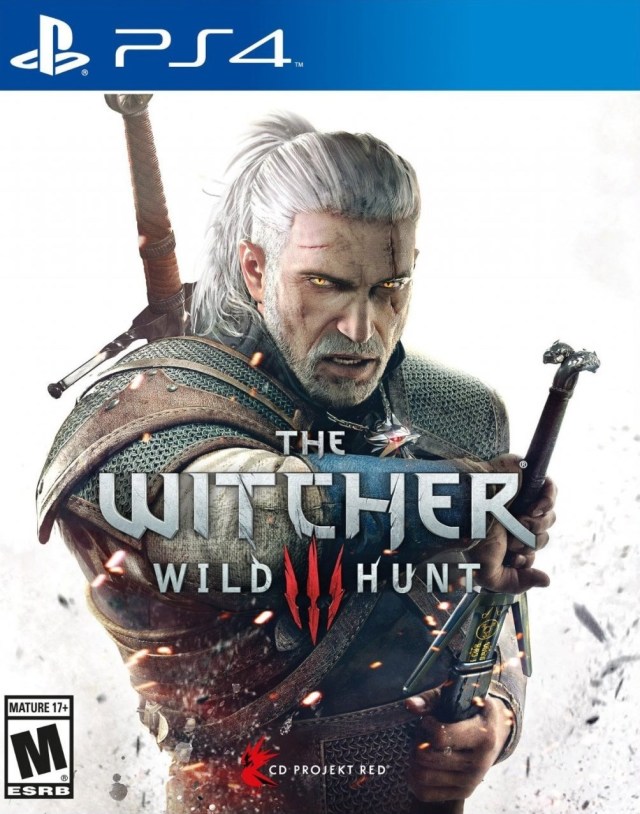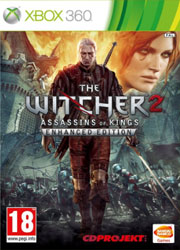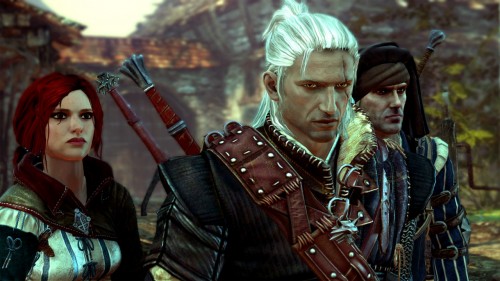Better late than never!
I found last year about as good for games as it was reasonable political discourse and beloved celebrities. Hell, my annual top tens, shortened to top fives in recent years, now find themselves shortened to a three-game single-post list – and still there weren’t many notable leftovers. These were basically the only ones that gave me the butterflies that a true GOTY contender should bring.
I enjoyed Fire Emblem Fates but disliked its split across three games; the long-awaited The Last Guardian came close but fell short due to technical issues that were somehow worse than its 2005 predecessor, Shadow of the Colossus, making it my least favourite of the series; Pokémon Go was among my most-played games but I don’t think there’s enough actual game there for me to put it up there with these three; Battlefield 1 was reliably fun and surprisingly polished for a DICE game at launch, but couldn’t hold my interest for long. I liked Project X Zone 2 as well, but I can’t ignore the fact that its main hook for me was the presence of Ryo Hazuki.
With most of my gaming time spent on retro these days, I had worried that my declining interest might have been terminal. But my document listing potential GOTY nominees for 2017 is already longer than the below, and Red Dead Redemption 2 is coming, so maybe it was just a crap year.
3) Uncharted 4: A Thief’s End
The most technically impressive reason to own a PS3 continues the pattern on the PS4. Uncharted 4 is stunningly beautiful, as I’m sure you’re aware – probably the closest we’ve come to a playable CG movie, so polished in its performances, cinematics and attention to detail that it makes everything else look amateurish. Frankly the visuals would have been enough to drag me through it, but it’s one of the strongest adventures in the series, and deserves credit for being the only mainline Uncharted game not to shit the bed with annoying supernatural enemies in the final act.
That said, I’ll be disappointed if we get Uncharted 5. ND’s done well to wring another top release out of this series and I’d like to see it turn those remarkable skills to something new.
2) The Witcher 3: Blood and Wine
Yes, one third of my already-truncated list is an expansion. I said it was a bad year.
Blood and Wine, though, is the first expansion in a long time – maybe since the GTA IV episodes – that’s an actual expansion. Not a handful of missions wrapped up in poor-value DLC. It’s new environments – on a similar scale to the already vast original and arguably the most beautiful locale yet – hosting a new scenario, new gameplay styles, new characters, an almost entirely new story.
It’s also probably the best part of the game. It was fun to take part in a smaller adventure, where you’re not fighting for the fate of the universe, that doesn’t use narrowing the focus as an excuse to skimp on the production values.
CD Projekt Red has fast become one of my favourite developers; one that – like Naughty Dog above – commands my full attention simply by announcing a new game. Only this is done without the financial and technical powers of a first-party publisher behind it. Is it simply lower costs of doing business in Eastern Europe, or an unexpectedly vast bounty coming from the admittedly brilliant Good Old Games? Who cares as long as Cyberpunk 2077 can come close to this?
1) Doom
I could probably have guessed at the beginning of 2016 that new releases from Naughty Dog and CD Projekt would be there or thereabouts when I was compiling my favourites of the year, but a new Doom? No way. I don’t think id’s games have been hugely relevant since Doom 3 got overshadowed by Half-Life 2, and the multiplayer and E3 demos didn’t instil confidence.
What I got, though, was a shockingly fun old-school shooter that revelled in its status as a game, and a Doom game at that. It has the visual design of the classroom doodles of a 14-year-old angsty teenager – but that’s a good thing. It’s about speed, responsiveness and blasting demons without only token gestures towards providing depth and a storyline for motivation – but that’s a good thing too. The soundtrack is awesome, no caveats required. The whole thing pressed the buttons I’ve been trying to touch with a recent retro fixation, reminding me why I grew up loving games above any other medium.
It’s brilliant, pure and simple. The excellent Wolfenstein: The New Order – based on an id property but not developed by the studio – reminded us to pay attention, but it was only the herald for the true return of id Software.

 When I finished The Witcher 3, for the first time in a while, I was left with the feeling that my most anticipated game of the year had knocked it out of the park. I’d expected great things, having
When I finished The Witcher 3, for the first time in a while, I was left with the feeling that my most anticipated game of the year had knocked it out of the park. I’d expected great things, having  Cheating? Nah. Although The Witcher 2 debuted in 2011, this year marked its first console appearance in its Enhanced Edition form. The 360 wasn’t the definitive way to experience it, but this side of a mortgage to pay for the PC to run it in its full glory it was still mightily impressive.
Cheating? Nah. Although The Witcher 2 debuted in 2011, this year marked its first console appearance in its Enhanced Edition form. The 360 wasn’t the definitive way to experience it, but this side of a mortgage to pay for the PC to run it in its full glory it was still mightily impressive.